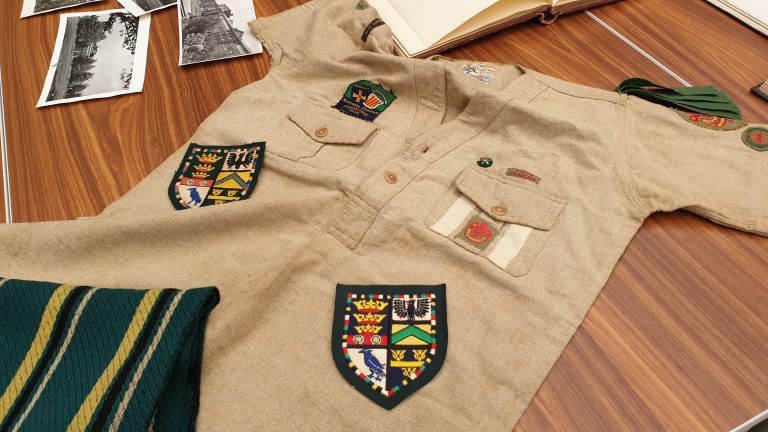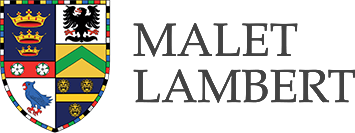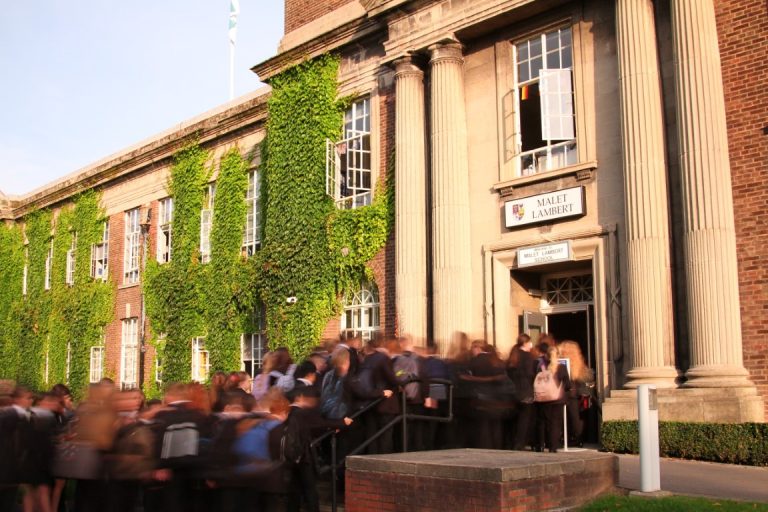The History curriculum at Malet Lambert inspires pupils to be curious about the world in which we live. Through historical enquiries, pupils are encouraged to develop their disciplinary thinking to help them investigate the past, and build their understanding of Britain’s history and our links to the wider world. Analysing contemporary sources, studying historical environments and considering historians’ interpretations are the key skills on which our pupils shape their understanding of the past. As such, the importance of literacy and reading is strongly emphasised in both classwork and homework within the history curriculum.
Developing a strong sense of period is a core principle of our History curriculum. Throughout the course, pupils are able to appreciate the kind of world in which the people they are studying actually lived, and what shaped their ideas and beliefs, leading to their actions. A wide-range of voices from the past within the History curriculum ensures that pupils consider the experiences, contributions and perspectives of diverse groups. Pupils benefit greatly from Malet Lambert’s association with the Holocaust Education centre at University College London, and the ‘Holocaust Beacon School’ status Malet Lambert received in September 2021. Our focus on the unfolding narrative of history through the key themes of power and control; lives of ordinary people; local history and Britain’s place in the wider world equip pupils with a coherent knowledge and understanding of change and continuity over time. In gaining a wide, historical perspective of the world around them, pupils at Malet Lambert are supported in their growing appreciation and understanding of British Values and their own personal development, and are well prepared for their lives in a diverse, modern Britain.

History is taught to all pupils in Y7, 8 and 9 over three lessons per fortnight, ensuring they receive a high quality, broad and balanced curriculum before beginning GCSE courses in KS4. The KS3 curriculum is designed to support the skills and contextual knowledge pupils need to be successful in GCSE History.
Facilities
The History department has outstanding facilities and resources within the school. There are six specialist History rooms. The GCSE History course is fully resourced with new textbooks for each of the four units of study. The newly updated KS3 curriculum is also complemented with three new core texts, including the recently published ‘Understanding the Holocaust: How and why did it happen?’ which supports our revised Holocaust Education curriculum in Y9 History. Classrooms have interactive whiteboards and projectors, and staff have access to a wide range of resources including Clickview (videos and documentaries), artefacts, visual sources, visualizers, and Chromebooks.
The Curriculum
The History Curriculum is strongly centred around enquiry questions:
Year 7
How do we make sense of History?
How did migrants change Britain before 1066?
Why were the Normans able to conquer Britain after 1066?
What mattered to medieval people?
Who really held the power in the medieval world?
Tudor Power & Ordinary Lives: Were the Tudors really that Terrible? (1485-1603)
Historic Environment Study: What do we learn about the significance of Hull from Hull Castle and the City walls?
Year 8
Were religious problems resolved in 17th century England?
Did ordinary people benefit from the Industrial Age, 1750-1900?
What influenced power in Industrial Britain?
Who benefitted from the British Empire?
Understanding the experiences and contributions of enslaved people.
Fighting for civil rights – has the world become a fairer place?
Year 9
How did the ‘Great War’ become a global conflict after 1914?
How was democracy challenged, 1919-39?
Holocaust Education – How and why did the Holocaust happen?
How has the world changed since 1939 to the present day?
- Political change (Cold War, growth of terrorism)
- Social & Economic Change (NHS, civil rights, equal pay, impact of strikes)
- Impact of the Internet age
GCSE History
History is a very popular subject at KS4, with two-thirds of pupils in Y10 and Y11 opting to take GCSE History. Subsequently, we have a large History team, with six specialist History teachers.
At Malet Lambert we have followed the Edexcel GCSE History 9-1 specification since its introduction in 2016. As a result, the History department has built up a wealth of excellent lessons and revision resources on the topics taught.
Year 10
- The American West 1835 – 95 (Period Study – 20% of final grade)
- British Medicine, 1250-present and The British sector of the western Front: injuries, treatments and the trenches 1914-18 (Thematic and Historic Environment study – 30% of final grade)
Year 11
- Weimar and Nazi Germany, 1918-39 (Modern depth study – 30% of final grade)
- Early Elizabethan England, 1558-88 (British depth study, 20% of final grade)
Extra Curricular
The History Department offers several trips and extra-curricular opportunities:
- Holocaust Project, which includes weekly sessions after school, trips and outside speakers (In association with University College London, part of the Holocaust Beacon School strategy)
- After school revision sessions (Y11)
- History Champions (Y7 and Y8) – After school activities related to developing an understanding of local history
- London Visit (Y9) – Imperial War Museum, including a Holocaust Education session; Tower of London, London Dungeon; Whitechapel & Jack the Ripper walking tour
- First World War Battlefields tour (Y10) – France and Belgium)

